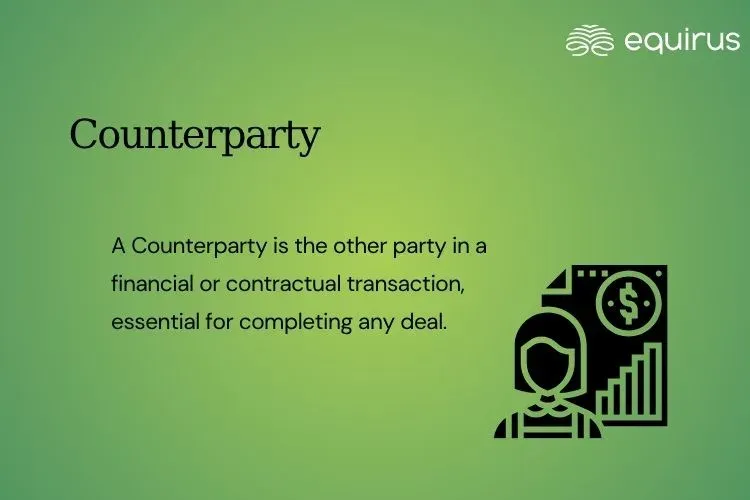Counterparty

Key Highlights
-
A Counterparty is the other party in a financial or contractual transaction, essential for completing any deal.
-
Types of Counterparties includes retail traders, market makers, financial institutions, governments/public entities and businesses/individuals.
What is Counterparty?
A Counterparty is the other party in a financial or contractual transaction, essential for completing any deal. Every transaction requires at least two counterparties, such as a buyer and seller or a borrower and lender, to fulfill opposing roles.
Types of Counterparties
-
Retail Traders: Individual investors trading through brokers.
-
Market Makers: Entities providing liquidity with simultaneous buy and sell orders.
-
Financial Institutions: Banks, brokers, or investment firms in large or over-the-counter trades.
-
Governments/Public Entities: Act as guarantors or counterparties in sovereign or institutional deals.
-
Businesses/Individuals: Participate in commercial contracts or sales.
Counterparty Risk
Counterparty Risk is the chance that a counterparty fails to meet obligations, such as defaulting on payments or failing to deliver goods/services. This risk applies to credit, investment, trading, and commercial transactions. Mitigation strategies include using clearinghouses or intermediaries to guarantee transactions or negotiating risk premiums and collateral in contracts.
Importance in Transactions
Counterparties are critical to transaction dynamics, influencing risk, liquidity, and market behavior. Understanding the counterparty helps assess potential risks and ensures clarity in rights and obligations. Well-defined counterparty agreements minimize disputes and provide legal clarity.
